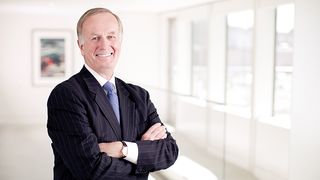Donald Trump may be the most unconventional president the United States has seen in generations, but he has just made an overwhelmingly conventional choice to be the next US ambassador to Australia, and one that is likely to help buoy the Australian-American alliance.
Arthur B. Culvahouse Jr., or 'AB' as he is known amongst friends and colleagues, is the sort of person that one would expect almost any other Republican president to nominate for the role. An establishment Republican figure, Culvahouse is probably best known for his vetting of GOP vice presidential candidates, including Mike Pence and, most famously, Sarah Palin. But he has actually been a DC figure since his time as a staffer for Howard Baker, the famed Republican senator for Tennessee from 1967-1985 known for his popularity in both political parties as the “great conciliator”.
Culvahouse is probably best known for his vetting of GOP vice presidential candidates, including Mike Pence and, most famously, Sarah Palin
As a senior aide to Baker – the ranking Republican on the Senate Watergate committee – Culvahouse supported Baker’s work on a committee that led the investigation into the biggest presidential scandal of the 20th century. And in 1987 – after President Reagan asked Baker to be his chief of staff amid the high likelihood of impeachment due to the Iran-Contra affair – Baker insisted on Culvahouse being White House counsel, who advises the president on all legal issues concerning the presidency and their administration. In surviving Iran-Contra and leaving the White House with an approval rating of more than 60 per cent, Culvahouse would become one of the president’s most trusted aides and cement his role as a trustworthy staffer who could quietly tackle the most difficult of tasks.
While Culvahouse may not be a household name outside of the beltway, his government-related accomplishments as well as his lucrative career leading an elite US law firm working in national security and foreign investment, have earned him respect across the political aisle and in the private sector. By all accounts, Culvahouse could not be further removed from Trump’s personality in that he eschews the limelight and prefers discrete and diligent work over partisan bluster.
But will all this translate into being a good US ambassador to Australia?
By all accounts, Culvahouse could not be further removed from Trump’s personality in that he eschews the limelight and prefers discrete and diligent work over partisan bluster.
Many Australians have found the lack of an official ambassador for more than two years to be insulting, with complaints that it appeared the Trump administration wasn’t prioritising one of America’s strongest allies. This was only underscored by how the last nominee for the role, Harry Harris, was quickly removed for consideration at the last minute in order to instead become the ambassador to South Korea.
Ultimately, Culvahouse appears to have the experience, temperament, and intelligence to address the challenges the United States faces in Australia and the region at large. Most importantly, Culvahouse seems to have the two huge advantages for what makes a conventionally good ambassador in that he has the ear of the president and seems capable of navigating the complexities of both US and foreign bureaucracies.
But with the US president facing exceedingly low approval ratings in Australia, Culvahouse will need to be more than conventionally talented at representing a government led by one of the most unconventional presidents of all time.






